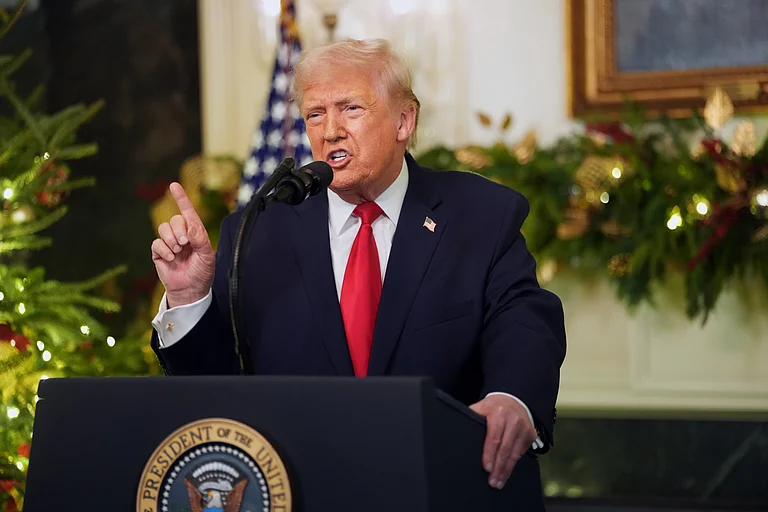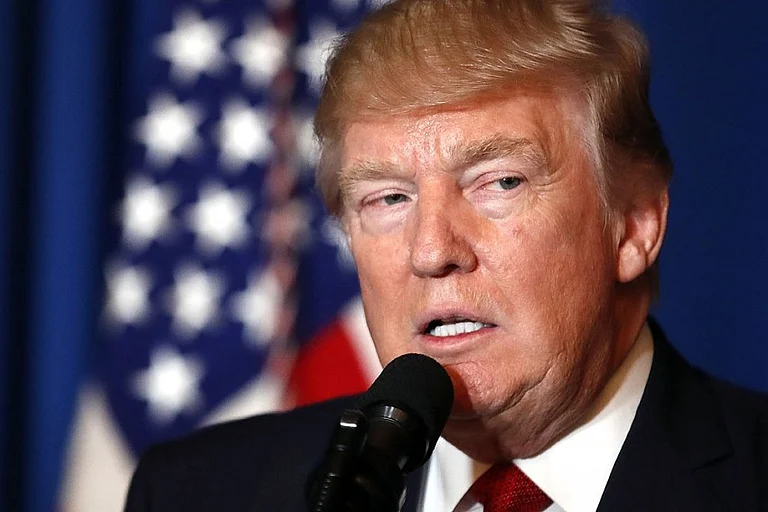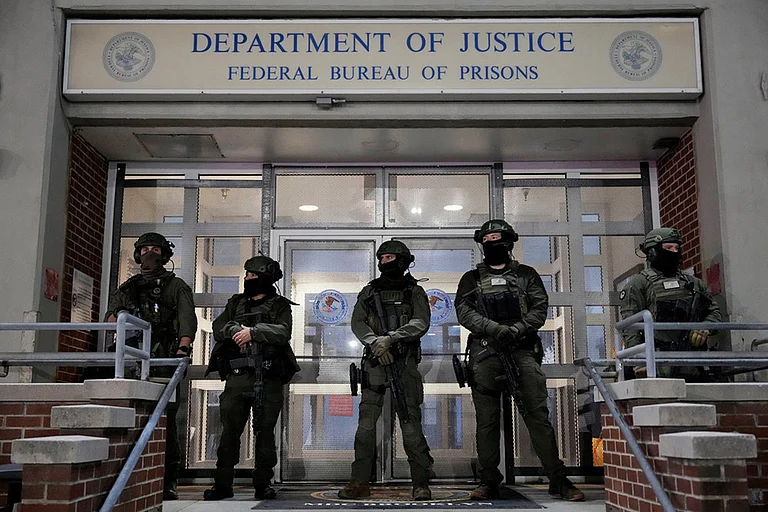Former President Donald Trump broke from his typical campaign trail to host a rally in Aurora, a suburb of Denver, Colorado, on Friday. This rally was significant as it marked the first visit by any presidential candidate to Colorado ahead of the upcoming November election, a state that has consistently leaned Democratic.
Trump's rally was charged with his familiar rhetoric regarding immigration, painting a picture of chaos and danger stemming from the arrival of migrants in small towns across America. During his speech, he employed language that some critics deemed misleading and dehumanizing. He portrayed migrants as a source of disorder and called out the Democratic leadership, particularly President Joe Biden and Vice President Kamala Harris, for what he claimed was their role in making communities less safe.
“They're ruining your state,” Trump asserted, directly addressing the crowd. He went on to emphasise that individuals like Kamala Harris should never hold the highest office in the land due to the harm he believes they have inflicted on communities like Aurora.
Trump's address included statements that echoed his earlier controversial remarks about immigrants. He referred to migrants using terms like "animals" and described the situation in Aurora as one where “barbaric thugs” had taken over. The former president’s inflammatory language aimed to stir fear among the audience, suggesting that Venezuelan gangs were seizing control of the area.
This narrative was likely fuelled by a disturbing incident in August when a video surfaced showing armed men inside an apartment building housing Venezuelan migrants. However, local authorities clarified that the situation was limited to a single block in the vicinity of Denver and that the area is now safe. Trump’s refusal to acknowledge these reassurances demonstrates his commitment to framing the immigration debate in starkly negative terms.
“I took a lot of heat for saying it, but I was right,” he said, harkening back to his infamous 2016 campaign launch where he claimed that Mexican immigrants were rapists and criminals. He reiterated this stance on Friday, insisting that other countries were dumping their criminals in the United States.
Trump's proposals were equally controversial. He called for the death penalty for any migrant who kills an American citizen or law enforcement officer, reiterating his promise to initiate the largest deportation effort in U.S. history if elected again. He specifically mentioned plans for "Operation Aurora," aimed at deporting members of the Venezuelan gang Tren de Aragua.
Local Perspectives
Among the attendees, there were mixed reactions to Trump’s assertions. Jodie Powell, a resident of Aurora, expressed scepticism about the narrative that gangs had overtaken the city. While she acknowledged an increase in crime linked to newcomers, she emphasised that it was not accurate to say that Venezuelan gangs controlled the area.
“It takes a small amount of people to make a big difference in the community,” Powell remarked, highlighting her concerns about crime, which she placed alongside worries about the economy. Her perspective reflects a common sentiment in communities facing demographic changes, where fears can sometimes be amplified by political narratives.
At the venue, Trump's supporters rallied around his claims. Stephen Miller, a former senior aide to Trump, addressed the crowd, showcasing mug shots of alleged gang members. He asked the audience whether these individuals represented the kind of neighbours they wanted, to which they responded with a resounding “no.”
Immigration Policies
Trump's immigration policies have remained a cornerstone of his political identity since 2015. He has pledged to deport not just criminals but also legal residents, such as Haitians who have been granted temporary protected status due to conditions in their home country. This pledge has drawn criticism from various quarters, as it not only targets undocumented immigrants but also those who have established lives in the U.S.
On the other side of the political spectrum, Vice President Harris has recently adapted her immigration stance to appeal to a broader range of voters. In her campaign events, she has highlighted her commitment to tough border enforcement, attempting to position herself as a viable candidate for those concerned about immigration issues. Harris also emphasised her dedication to Israel's security during her campaign, seeking to differentiate her approach from Trump’s.
As the November election approaches, immigration will likely remain a pivotal topic in the campaigns of both Trump and Harris. The former president's rally in Aurora underscored his unwavering focus on immigration, despite the mixed reception of his views in local communities.


























